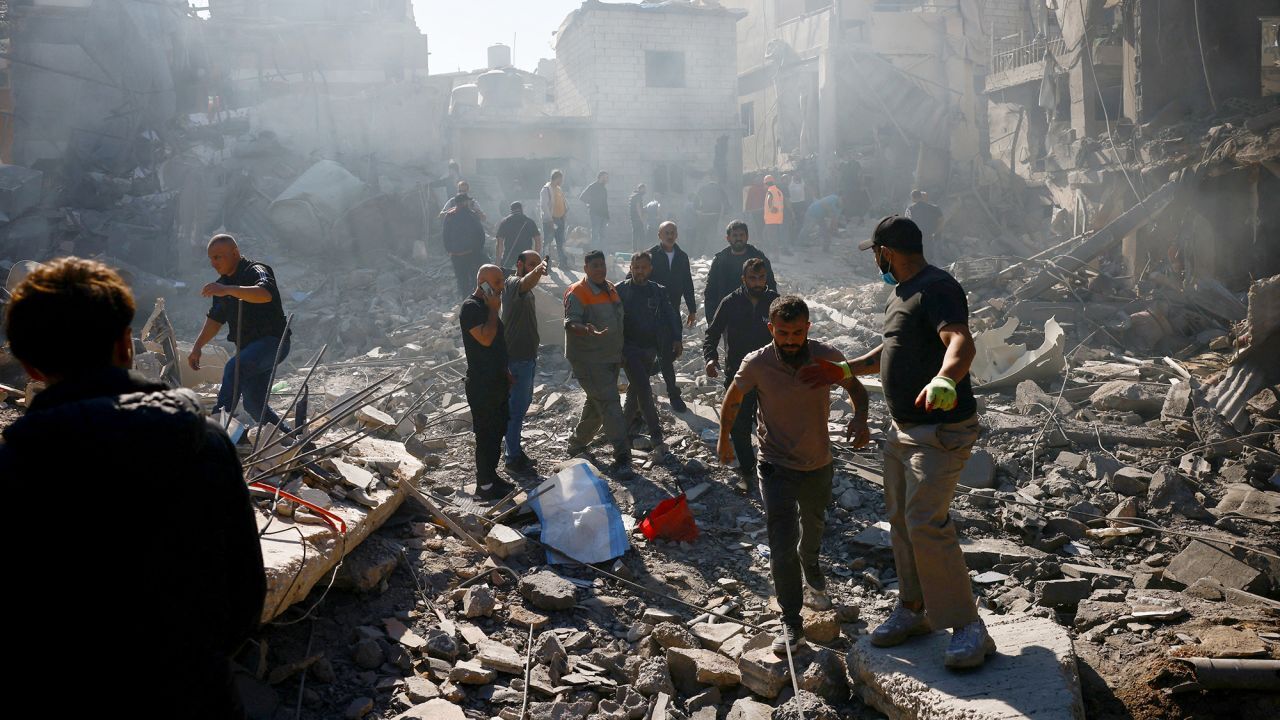On a recent night, Mohammed Sukayneh experienced a devastating Israeli airstrike that demolished his home of 45 years in southern Beirut, killing at least 18 people, including four children. As he sifted through the rubble for belongings, he recounted the harrowing moments when the attack occurred without warning, while he and his family were asleep.
The blast produced a cacophony of sounds and chaos, burying them under debris and leaving Mohammed grappling with the traumatic aftermath of losing neighbors and family members.
The airstrike struck a heavily populated area near the Rafik Hariri Hospital, a place where residents believed they were safe. Mohammed described the shock and horror of the moment: “We didn’t recognize what was happening.”
He recounted how everything around him collapsed, trapping him and causing severe injuries to his 20-year-old nephew, who now lies in intensive care. The devastation extended beyond his family, with reports of multiple victims buried under the rubble, including two young girls who were outside his home when the strike hit.

Israeli Airstrike in Southern Beirut Kills 18, Destroys Homes, and Sparks Civilian Outrage
In the aftermath of the attack, civil defense workers reported that six residential buildings were leveled, displacing many and creating a scene of panic and mourning. A local resident emphasized that the area was populated entirely by civilians, expressing frustration over the random nature of the strikes.
Mohammed, filled with anger, criticized the indiscriminate bombing, questioning what military targets could possibly justify such destruction in a civilian neighborhood.
The Israel Defense Forces (IDF) claimed the strike was aimed at a Hezbollah target near the hospital but did not provide specific details about the nature of that target. While the Rafik Hariri Hospital reported only shrapnel damage, it remained operational.
In contrast, Al Sahel Hospital, located about two kilometers away, evacuated all patients and staff following threats of being targeted due to allegations of housing Hezbollah facilities. Hospital officials vehemently denied these claims, providing tours of their facility to prove their innocence.
As tensions continued, Israeli forces conducted further strikes in the area, raising fears among residents and healthcare workers. Despite the trauma and destruction, doctors at Al Sahel expressed their commitment to resuming medical services, emphasizing the humanitarian role of their institution.
The situation remains precarious, with ongoing threats and bombings creating an atmosphere of fear and uncertainty for both the community and medical staff striving to serve their patients amidst the violence.
